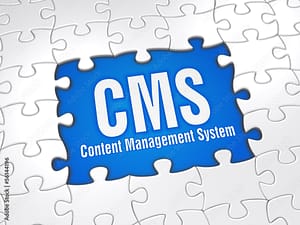What is WordPress? A Comprehensive Guide for Beginners
Introduction: Why WordPress Matters in the Digital World
If you’ve ever thought of starting a blog, building a business website, or launching an online store, there’s a good chance you’ve come across the name “WordPress.” But what exactly is WordPress? And why is it so widely used across the internet? At its core, WordPress is a content management system (CMS)—a platform that allows you to create, manage, and publish content on the web without needing to write a single line of code. In other words, it’s your website’s engine, and it’s powering more than 40% of all websites online today. That’s not just popularity—it’s domination.
WordPress has become the default choice for individuals and businesses alike because it bridges the gap between technical complexity and creative freedom. Whether you’re a writer who wants to share your thoughts, a business owner looking to expand your reach, or a non-profit trying to spread a cause, WordPress gives you the tools to go live fast—with style and control.
Table of Contents
The History of WordPress: How It All Began
WordPress started in 2003 as a joint project between Matt Mullenweg and Mike Little. Back then, it was just a fork (a variation) of an older blogging platform called b2/cafelog. The idea was to create something more flexible, modern, and user-friendly. What began as a simple blogging tool gradually evolved into a full-blown website-building platform.
Why is this history important? Because it tells us that WordPress was born from the need to simplify web publishing. Its open-source nature meant anyone could contribute to its improvement, and over time, thousands of developers around the globe helped build what we now know as WordPress. It’s a product of collaboration, community, and continuous innovation.
Understanding Open-Source and WordPress.org vs WordPress.com
A common source of confusion for beginners is the difference between WordPress.org and WordPress.com. Let’s clear that up.
- WordPress.org is the open-source software that you can download for free and install on your own web hosting server. This version gives you total control. You can install plugins, customize your theme, monetize your site, and more.
- WordPress.com, on the other hand, is a hosted platform owned by Automattic (founded by Matt Mullenweg). It takes care of hosting, security, and maintenance for you—but comes with limitations unless you pay for a premium plan.
The beauty of open-source software like WordPress.org is that it’s free to use and modify. Thousands of developers contribute to improving its code, themes, and plugins, which means it’s constantly evolving with new features, better security, and wider community support. If you want full control and the ability to scale, WordPress.org is the way to go.
WordPress as a Content Management System (CMS)

A CMS is essentially a software that helps users create, manage, and modify digital content without needing specialized technical knowledge. Think of it as your website’s backstage area. With WordPress, you get an intuitive dashboard where you can add blog posts, create pages, manage media, and control how everything looks—without ever touching code (unless you want to).
This ease of use is one of the major reasons WordPress is so successful. It allows total beginners to build websites that look professional, while still offering depth and flexibility for developers who want to get under the hood. So whether you’re a tech wizard or just starting out, WordPress adapts to your level.
Themes: Designing Without a Designer
Designing a website used to require serious design skills or hiring an expensive web designer. WordPress changed that with themes—pre-made design templates that control the appearance and layout of your site.
There are thousands of free and premium themes available. Want a minimalist blog? A bold photography portfolio? A corporate website? There’s a theme for every need. And these themes are often customizable—meaning you can change colors, fonts, layouts, and even animations with just a few clicks.
Many themes also come with built-in demos that you can import and tweak to your liking. So instead of starting from a blank page, you can start with something beautiful and make it your own.
Plugins: Superpowers for Your Website
If themes control how your site looks, plugins control what your site can do. A plugin is like an app for your website. Need to add a contact form? Install a plugin. Want to optimize your SEO? There’s a plugin for that. Planning to launch an online store? WooCommerce (a plugin) can turn your site into a full-featured e-commerce platform.
Currently, there are over 60,000 free plugins in the official WordPress Plugin Directory. And many premium options exist for more advanced needs. From security to speed optimization, from multilingual support to social sharing buttons—plugins let you add features without needing to write code.
But a word of caution: don’t go overboard. Too many plugins can slow down your site or create conflicts. Always check reviews and keep them updated.
WordPress for Blogging
At its heart, WordPress was created as a blogging platform, and it still excels in that area. It offers powerful tools for writers—like a block-based editor (Gutenberg), media support, post scheduling, categories and tags, and comment management.
Whether you’re starting a personal journal or a professional blog, WordPress makes it easy to structure your posts, add images or videos, and even collaborate with other writers. You can also use plugins like Yoast SEO to ensure your content ranks well on search engines.
Many successful bloggers—from travel bloggers to tech influencers—owe their online presence to WordPress. It’s not just easy to use; it’s built to help you grow your audience.
WordPress for Business Websites
Business websites need to look professional, perform well, and offer all the features customers expect—contact forms, service pages, maps, testimonials, and sometimes even booking systems. WordPress delivers on all fronts.
Using plugins like Elementor or Beaver Builder, businesses can craft custom layouts without hiring a developer. With themes tailored for corporate needs and integration with tools like Mailchimp, Google Analytics, and CRMs, WordPress becomes a full digital solution for entrepreneurs.
Many small businesses—and even major brands—rely on WordPress because it balances ease of use with powerful functionality. Whether you’re a lawyer, a yoga instructor, or a startup founder, WordPress can become your digital home base.
WordPress for E-Commerce: Meet WooCommerce
Want to sell products online? WordPress + WooCommerce is a match made in digital heaven. WooCommerce is a plugin that turns your site into an e-commerce store, allowing you to sell physical or digital products, manage inventory, accept payments, and handle shipping—all from your WordPress dashboard.
WooCommerce is highly customizable, integrates with various payment gateways like PayPal and Stripe, and supports extensions for subscriptions, bookings, tax automation, and more. Best of all, it’s free to start with, and scales as your store grows.
So whether you’re selling handmade crafts, online courses, or drop-shipped items, WordPress gives you the tools to run a store that looks great and works seamlessly.
SEO and WordPress: Getting Found Online
SEO (Search Engine Optimization) determines how easily your site is found via search engines like Google. WordPress is inherently SEO-friendly—it generates clean code, supports permalinks, and allows you to customize metadata and image tags.
To supercharge your SEO efforts, plugins like Yoast SEO or All in One SEO give you advanced features like content analysis, keyword optimization, XML sitemaps, and social media integration.
Good SEO means more traffic, and more traffic can lead to more subscribers, customers, or supporters. WordPress sets you up with the right foundation and the tools to climb those rankings.
Security and Updates
Because WordPress is so popular, it’s also a target for hackers. But that doesn’t mean it’s unsafe. In fact, the core WordPress software is quite secure—as long as you keep it updated and follow good practices.
Security plugins like Wordfence and Sucuri offer firewalls, malware scanning, and login protection. It’s also wise to use strong passwords, enable two-factor authentication, and back up your site regularly with tools like UpdraftPlus.
Automatic updates for plugins, themes, and the WordPress core can be enabled to keep your site secure without constant monitoring.
Hosting and Domains
To launch a WordPress.org site, you need two things:
- A domain name (like
mywebsite.com) - A web hosting service (a server where your website lives)
Popular WordPress hosts include Bluehost, SiteGround, Hostinger, and Kinsta. Many offer one-click WordPress installation, automatic updates, and customer support.
Managed WordPress hosting is also available for those who want speed, security, and backups taken care of for them. Choose a host based on your budget, traffic expectations, and technical comfort level.
The WordPress Community and Resources
One of the most powerful aspects of WordPress isn’t the software—it’s the community. There are thousands of forums, blogs, YouTube tutorials, and online courses dedicated to WordPress.
You’ll find meetups, conferences (like WordCamps), and social media groups where people share tips, answer questions, and collaborate on projects. If you ever get stuck, chances are someone out there has already solved your problem—and shared the solution online.
This supportive ecosystem means you’re never alone in your WordPress journey.
Conclusion: Should You Use WordPress?
So, should you use WordPress? If you’re looking for a flexible, powerful, and beginner-friendly way to build a website—absolutely. Whether you’re starting a blog, building a business, launching a store, or creating a portfolio, WordPress gives you the tools to make it happen.
It’s free, open-source, customizable, scalable, and supported by a global community. And with its vast ecosystem of themes and plugins, your website can grow alongside your ambitions.
In short: WordPress isn’t just a tool—it’s a launchpad. And the best time to get started? Today.






Pingback: Bluehost For Beginners: A Web Hosting Adventure You Didn’t Know You Signed Up For - Voob